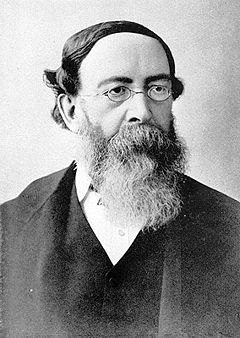
I first came across the name William Hearn in Rothbard’s history of economic thought where he discusses some early precursors of Austrian economics.1
That he lived and worked in Australia at the University of Melbourne (1854-88) was an added bonus. Hearn’s book on Plutology (1864) should really have been the second volume in the series CIS Classics planned by the Centre for Independent Studies which only saw one volume published (2005) before it was aborted. That was Bruce Smith’s Liberty and Liberalism 1887) which I have resurrected and put online here.
I have put online four of Hearn’s books. He only wrote one on economics, the oddly named Plutology (1865)2 based on his lectures at the University of Melbourne. For decades it was the only economics book published in Australia until the 1920s, but since he was a laissez-faire free trader and, given the direction Australian economic policy went, nobody must have read it or taken any of its ideas to heart. The new Commonwealth of Australia which arose in 1901 was based on four sturdy pillars of statism, namely, protectionism, compulsory wage arbitration, the “White” Australia policy to prevent Asian immigration, and massive government ownership and control of infrastructure (or what was called at the time “state socialism”). Hearn would have been appalled.
Hearn’s contributions to economics have been dismissed by historians such as La Nauze as either superficial or plagiarised.3 Rothbard’s keen eye immediately saw that Hearns was moving in an entirely different direction to the mainstream “classical school” against which Hearns has been improperly judged and compared. In my own reading I was struck by how “Bastiat-like” his arguments were. Note especially this interesting chapter on the proper functions of the state: Chapter XXIII. “Of the Impediments Presented to Industry by Government”.
The Australia economist Greg Moore at the University of Notre Dame4 also takes Hearn’s ideas more seriously, seeing them as part of a much larger social theory about individual liberty and free societies, which he pursued in the volumes which followed Plutology which dealt with law, the sociology of the family and the clan, and the rise of the state. I have put all these books online (in facs. PDF) to begin with, but have made an initial attempt at putting Plutology in HTML as well.
David Kemp in his multi-volume history of Australian liberalism also has some positive things to say about Hearn: David Kemp, A Free Country: Australia’s Search for Utopia, 1861–1901 (Melbourne: The Miegunya Press, 2019). Section on Hearn in Chap. 10 “Liberalism and the New Economics.”
My collection of Hearn’s books can be found here. The HTML version of Plutology here.
- Volume II: Classical Economics (2006), “14.8 Plutology: Hearn and Donisthorpe,” pp. 463-65. See Hearn’s bio page for an extract from this here. [↩]
- From the Greek πλοῦτος, ploutos, ‘wealth’ , and λόγος logos , ‘speech’, ‘account’, ‘story’. [↩]
- J. A. La Nauze, “Hearn, William Edward (1826–1888)” Australian Dictionary of Biography, Volume 4, (Melbourne University Press, 1972). [↩]
- Gregory Moore, “The Anglo-Irish context for William Edward Hearn’s economic beliefs and the ultimate failure of his Plutology,” European Journal of the History of Economic Thought (2009). [↩]
